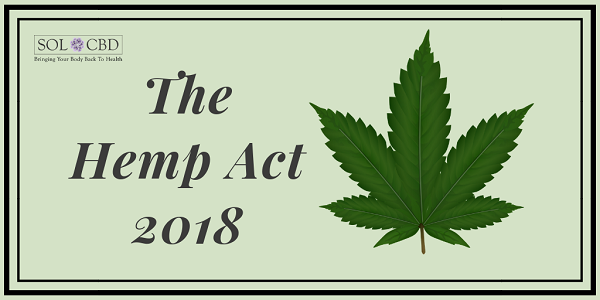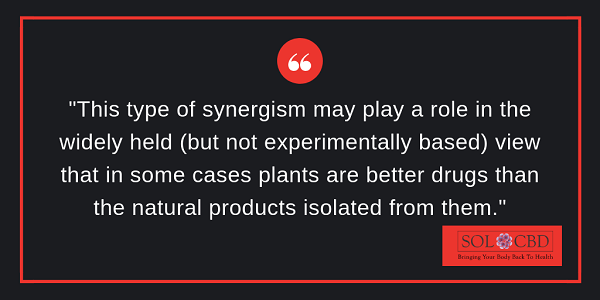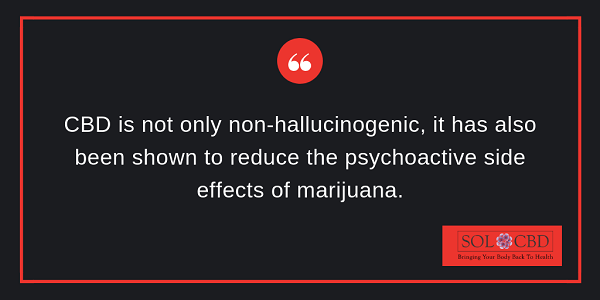Fake news has reared its miserable head as a real thing over the past decade, and CBD "facts" cannot always be trusted. Following, we declutter CBD oil facts for your easy reference.
We assume you know that cannabidiol, or CBD, is a chemical compound found in the hemp plant family, Cannabaceae, or genus Cannabis L (also called hemp). CBD is one of many compounds called "cannabinoids," and it was identified in cannabis only about two or three decades ago.
Cannabis sativa L. is the only recognized species of this plant family in the U.S. at the moment, and botanically, it is called "marijuana." It is also commonly referred to as "cannabis."
By U.S. law, “marijuana” is defined as Cannabis sativa L. with more than .3 percent tetrahydrocannabinol (THC) content. THC is also a cannabinoid, like CBD. [1]

CBD Oil Fact #1: CBD Oil is Legal
CBD extract and CBD products are completely legal when extracted from cannabis with less than 0.3 percent THC. By law, this cannabis is defined as "industrial hemp," a term which is (botanically speaking) also somewhat invented. But the classification is convenient and has become a common way of differentiating between THC-rich (marijuana) and CBD-rich (industrial hemp) Cannabis sativa L. Industrial hemp is often referred to just as "hemp" in the media and among users.
Hemp-derived CBD has, in fact, been legal and fairly easily accessible for the past few years already. But its possession, production, and sales have been burdened by many complex restrictions and regulations.

Fortunately, all of this has been simplified by the amended Farm Bill passed in December 2018. The bill reclassified industrial hemp for commercial use and removed it from the Controlled Substances list of prohibited Schedule I drugs. This has been a long time coming. Hemp has been unnecessarily demonized and its cultivation restricted for almost a century. [2]
Marijuana remains a Schedule 1 drug under the Controlled Substances Act of 1970. (The national government says marijuana is of no legitimate medical use, which is also an unfair and ridiculous notion. But that's another story for another time!)
Fortunately, many states are relaxing their marijuana regulations and laws. It is currently legal to possess it for recreational and medical purposes in 10 states, including Washington, D.C.
CBD Oil Fact #2: CBD is NOT Psychotropic
"Psychotropic" refers to the hallucinogenic and other mind-altering symptoms usually associated with Schedule I drug use.
No, CBD is not psychotropic. As once overheard: you are more likely to destroy your lungs from smoking hemp than getting high on it. CBD has no hallucinogenic effects, and it won't alter your mind for you. In high doses, it may cause you to feel sleepy, may be drowsy. In general, though, users report feelings of calm, relaxation, and well-being. Not bad at all, also because it is generally considered completely safe.
It is thought that CBD's non-hallucinogenic effect is mostly because CBD molecules interact differently with specific receptors in the brain. Stimulating neurological cannabinoid-1 (CB1) receptors seems to cause the characteristic "high" marijuana is known for. CBD has a low affinity for this receptor, so there's no doped feeling when you take it. Only smoking marijuana will likely have that effect, and it can cause hallucinations in some users. [3]

This is still an area for confusion for many, though. Why does marijuana make you feel high but hemp doesn't? Blame the other cannabinoid—tetrahydrocannabinol, or THC. THC stimulates CB1 receptors, which, in turn, gives rise to the aforementioned effects.
And these CBD facts are simple, because hemp is abundant in CBD and low in THC, while the reverse is true for marijuana.
Don't hasten to vilify marijuana, though—it has known and proven medicinal functionality. Also, it works beautifully in tandem with CBD in what is called the "entourage effect."
CBD Oil Fact #3: The Amazing Entourage Effect
One of the lesser-known facts about CBD is this synergistic effect when combined with other cannabinoids, including THC. It essentially means that CBD's health properties appear to be improved when in combination with other cannabinoids. In fact, some researchers speculate that this is why plants are sometimes the remedy of choice over pharmaceutical drugs:

Research is ongoing.
Whole-plant hemp always has had polypharmaceutical properties. A handful of studies demonstrate this cannabinoid synergy. In some preliminary studies comparing CBD, THC, and a combination of the two for the treatment of pain, the combination won out.
Other test tube studies explored the effects of medically valuable terpenes on facilitating the movement of cannabinoids across the blood-brain barrier. [4]
This is why it's important to source whole-plant products when purchasing CBD oil.
CBD Oil Fact #4: Many CBD Health Benefits and More to Come
The proven health benefits of CBD products, including CBD hemp oil, already form a very long list. It has been proven to reduce pain due to its anti-inflammatory properties, and in one case it was specifically shown to be a practical alternative for fibromyalgia-associated pain.
There is also evidence it can be used to treat Crohn’s disease, targeting inflammation in the digestive system.
It can reduce symptoms in long-term sufferers of anxiety and depression and is now used to treat severe seizures, especially in persons resistant to traditional treatments. [5] [6]
RELATED: CBD Dosage for Inflammation: What You Need to Know
CBD also has a few surprising and rather unique properties.
CBD and Schizophrenia
Marijuana has been shown to have potentially severe side effects in a small portion of the population already predisposed to mental illness. This means that, in some cases, marijuana can trigger the onset of schizophrenia, paranoia, and delusions.

It has also been clinically proven to have a positive reduction of psychoactivity when used by people who have schizophrenia. Especially for those who did not respond to traditional drug therapies, CBD was extremely beneficial. [7]
CBD and Addiction Treatment
Some of the most exciting research to emerge about CBD concerns its potential as a treatment for severe opioid, psychostimulant, marijuana, and tobacco addictions. Some of the theories behind this property include CBD's anti-anxiety, anti-psychoactive, and calming effects.
RELATED: https://www.solcbd.com/blogs/news/cbd-treat-opioid-addiction
Cannabidiol also has been shown to inhibit the reward-facilitating effect of opioids. As in many other areas of CBD research, the possibilities for addiction treatment require further clinical trials to gain more in-depth understanding as to how and why it seems to have such a positive effect. [8]
CBD Oil May Combat Tumors and Cancer

Although human trials are lacking, preliminary data is showing that CBD treatments have successfully suppressed colon cancer tumors as well as effectively killing breast cancer cells in animal and lab trials. Also, many lab-synthesized cannabidiols (such as dronabinol) are approved treatments for cancer patients, both in the United States and in Europe.
Cannabidiol has also been shown to have a significant impact on:
- tumor neovascularization (formation of new blood vessels),
- cancer cell migration, and
- cancer cell metastasization.
RELATED: Using CBD to Support with Breast Cancer
The research continues to explore CBD oil benefits for the treatment of many health issues. Its favorable side-effect and safety profile makes it an alternative of choice for many. These CBD facts and potentials open new doors in medicine everywhere, so its future is full of possibilities.
-----------------
Sources:
- https://plants.usda.gov/core/profile?symbol=casa3
- https://www.forbes.com/sites/andrebourque/2018/12/17/how-hemp-and-the-farm-bill-may-change-life-as-you-know-it/#1d2b2a78694c
- https://www.ncbi.nlm.nih.gov/pmc/articles/PMC5908416/
- https://bpspubs.onlinelibrary.wiley.com/doi/full/10.1111/j.1476-5381.2011.01238.x [Under: The Roots Of Cannabis Synergy]
- https://www.who.int/medicines/access/controlled-substances/CannabidiolCriticalReview.pdf [p.15]
- https://www.medicalnewstoday.com/articles/317221.php
- https://www.ncbi.nlm.nih.gov/pubmed/22716160
- https://link.springer.com/article/10.1007/s13311-015-0373-7




























